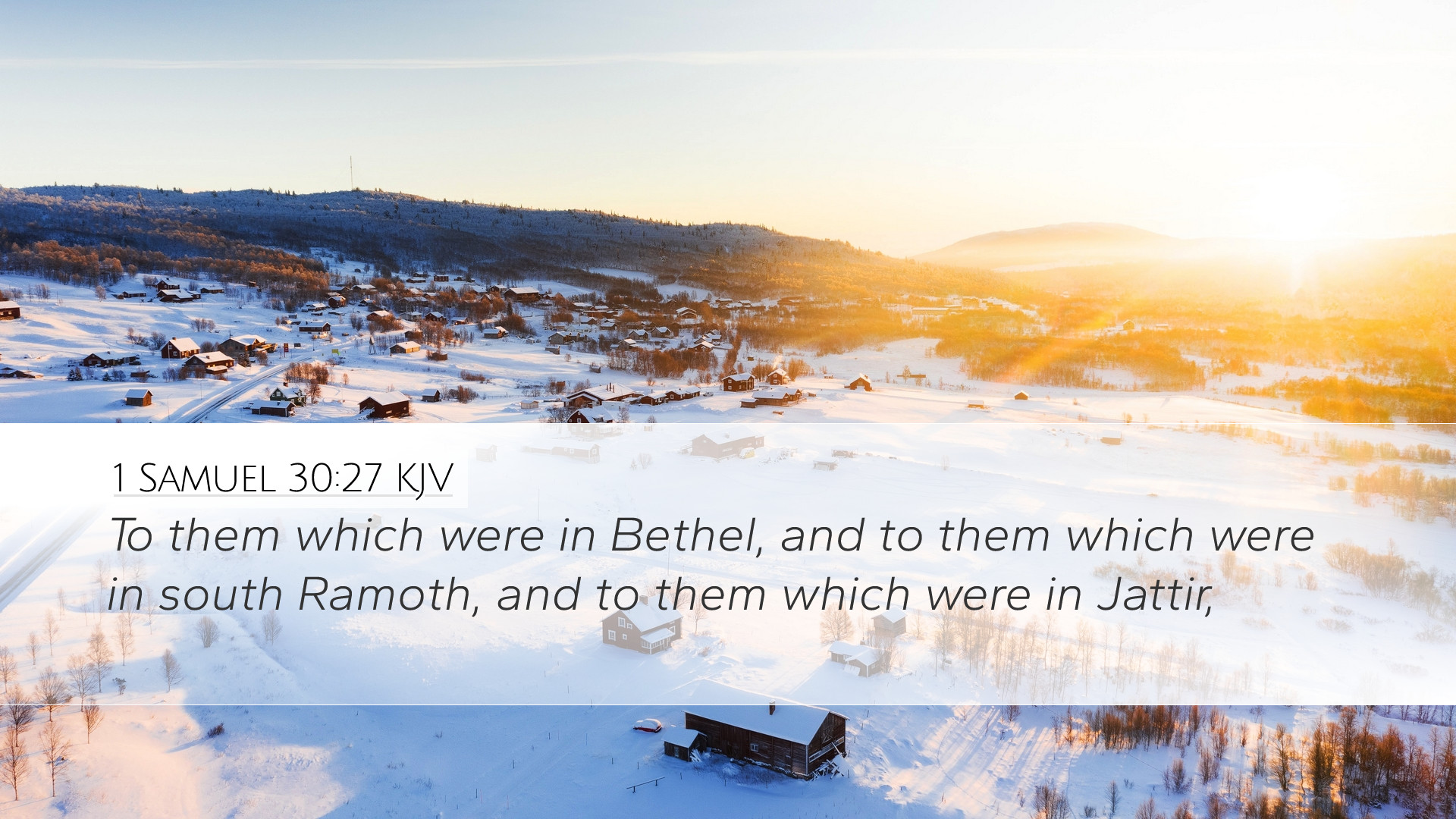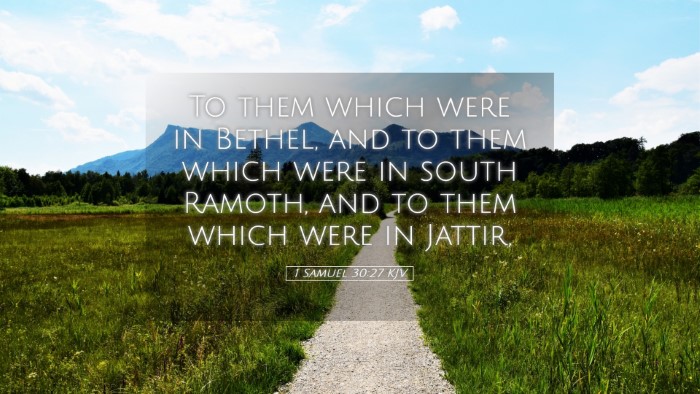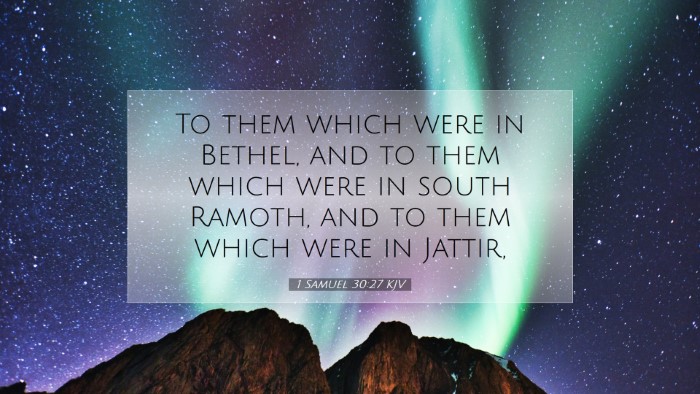Commentary on 1 Samuel 30:27
Verse: 1 Samuel 30:27 - "He sent it to the elders of Judah, to his friends, saying, 'Behold, a present for you of the spoil of the enemies of the Lord.'
Contextual Overview
The context of 1 Samuel 30 involves a significant moment in the life of David. After his camp at Ziklag was attacked by the Amalekites, David and his men returned to find their families taken captive and their city burned. Following a period of grief, David sought counsel from the Lord, pursued the enemy, and successfully recovered everything that had been taken. This victory allowed David to showcase not only his leadership but also his character as a king-in-waiting, one who recognizes the need to share blessings and promote unity among the tribes of Israel.
Exegesis and Analysis
1. The Act of Sending Gifts
David’s sending of gifts to the elders of Judah reveals his diplomatic wisdom and recognition of the need for goodwill among leaders. Matthew Henry highlights that despite hardships, David understood the importance of fostering relationships within Judah. This decision can be seen as a strategic move to strengthen his claim to kingship and enhance unity amongst the tribes, inviting loyalty and support.
2. Symbolism of the Spoil
The phrase "present for you of the spoil of the enemies of the Lord" holds deep theological implications. Albert Barnes notes that the spoil symbolizes both material provision and spiritual victory. The gifts were not merely tokens; they represented the triumph of God's people over their adversaries. This gesture shows that victories achieved under God's guidance must be acknowledged and shared, reinforcing the communal nature of faith and blessing.
3. Emphasis on the Lord's Enemies
The reference to "the enemies of the Lord" is significant. Adam Clarke explains that the Amalekites, being adversaries of Israel, personify every opposing force against God’s people. By framing the spoils in this way, David subtly points to the divine mandate against these enemies, emphasizing that their defeat reaffirms God’s sovereignty and protection over Israel.
Theological Insights
1. Generosity as a Reflection of God’s Nature
David’s generosity embodies God’s own character. Just as God provides abundantly for His people, so David extends provisions to the elders of Judah. This act serves as a reminder to modern believers about the importance of sharing God’s blessings with others, especially in leadership. Matthew Henry exhorts the faithful to remember that leadership is not just a position of authority but one of service and generosity.
2. Restoration and Community
In a broader sense, this passage underscores the theme of restoration. David's act of sending gifts can be viewed as a restoration of relationships post-conflict. Albert Barnes suggests that in times of recovery, both physical and relational, it is vital to restore community ties, which promotes healing after challenges.
Practical Applications for Pastors and Theologians
Leaders in ministry can draw from this passage important lessons regarding the nature of leadership and the responsibility of stewardship. Here are several applications:
- Encouragement of Generosity: Pastors should encourage their congregations to recognize and share the blessings they receive from God, fostering a spirit of generosity in all aspects of life.
- Building Community: In moments of victory and in times of struggle, leaders must prioritize building and strengthening community ties, reflecting the unity David sought among the tribes.
- Divine Acknowledgment: Just as David attributed his success to God, pastors should continually teach their congregations the importance of acknowledging God’s role in their victories, reinforcing faith and dependence on Him.
Conclusion
1 Samuel 30:27 serves as a profound reminder of the interconnectedness of spiritual victory and community responsibility. David's act of generosity toward the elders of Judah illustrates key principles of leadership, divine acknowledgment, and restoration. As pastors, students, and theologians reflect on this passage, they are called to embody the same spirit of generosity and community-mindedness, ever conscious of the source of their strength and victories—our Lord God.


